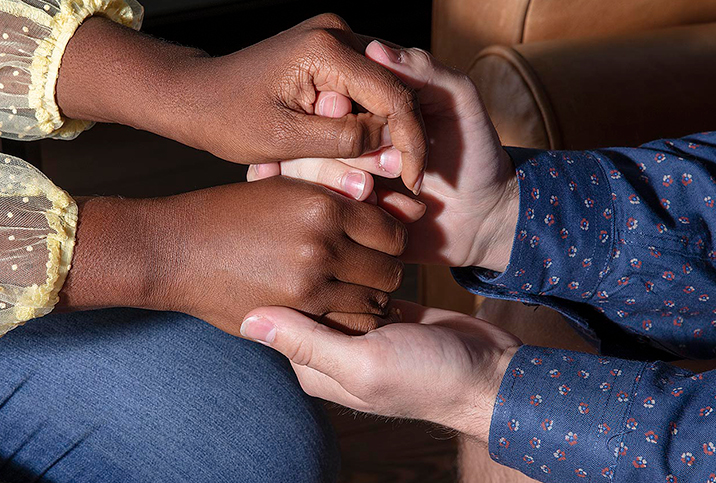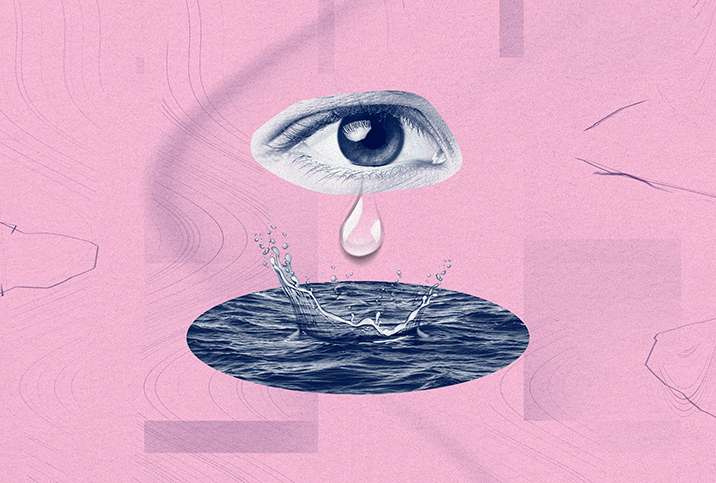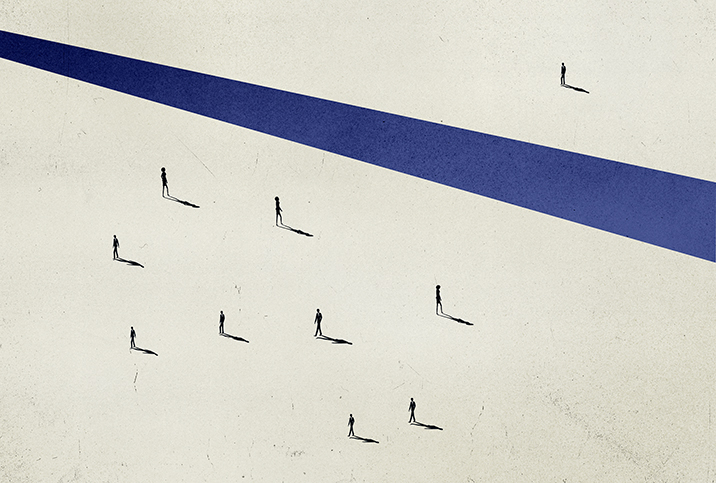Improving Your Mental Health

Mental health disorders are conditions involvingchanges in mood, thinking or behavior that cause distress and problems in work, family or social life, and also decrease quality of life and daily functioning.
Unfortunately, mental health disorders are extremely common: An estimated 1 in 5 American adults—more than 50 million people—is living with a mental health disorder.
The severity and symptoms of mental health disorders range considerably. The most common conditions are anxiety disorders (generalized and social anxiety disorders, panic disorder, post-traumatic stress disorder (PTSD), obsessive-compulsive disorder (OCD), mood disorders (depression, bipolar disorder), personality disorders, eating disorders (anorexia nervosa, bulimia nervosa, binge eating disorder) and substance-use disorders.
Signs of mental health issues
The list of psychological and behavioral signs of mental health issues is quite lengthy. A few of the more prevalent symptoms that warrant attention, pulled from multiple sources, might include the following:
- Frequent or long periods of sadness, emptiness, hopelessness or worry
- Loss of interest in and pleasure from normal activities
- Inability to concentrate
- Fatigue or lethargy
- Extreme mood swings
- Being aloof or detached from others
- Decreased or increased (hypomania/mania) sex drive
- Failure to fulfill work or social obligations
- Unnecessary feelings of guilt
- Sudden or inappropriate outbursts of anger or violence
- Difficulty coping with daily life stressors
- Changes in sleeping patterns
- Paranoia or mistrust
- Tearfulness
- Changes in eating patterns or weight
- Emotional irregularities or disproportionately emotional responses to life events and problems
- Having false or unrealistic beliefs
- Experiencing hallucinations
- Substance use
- Incurring financial problems
- Frequent illness
- Difficulty maintaining relationships
- Serious problems at school, work or with the law
- Suicidal thoughts
While many of these symptoms may be explained by other causes and circumstances, when they start to mount up, they become significant signs that a person may be struggling.
Physical symptoms of a mental health disorder may include pain, numbness, sharp shooting sensations, muscle tension, increased heart rate or blood pressure, sweating and gastrointestinal distress.
When and how to seek help
If you're experiencing any new or unusual symptoms that are having a negative impact on your life, it's important to investigate the reason(s). A complete physical exam can rule out underlying medical problems. For example, hypothyroidism can cause many symptoms of depression, and heart and respiratory disease and diabetes can mimic the signs of anxiety.
If it's indicated, a doctor can refer you to a mental health specialist. If you are already under the care of a mental health professional, set up an appointment right away if you're experiencing new or worsened symptoms.
If at any time you're worried for your safety, or for the safety of others, or if you are experiencing suicidal or self-harm thoughts, there are multiple resources for immediate help, such as the National Suicide Prevention Lifeline (800-273-8255) and the Crisis Text Line (text HOME to 741741 to connect with a crisis counselor). Simply calling 911 may be the best option in emergency cases.
If you are diagnosed with a mental health disorder, you're not alone. In the United States, it's estimated that more than 50 million people live with mental illness. Neither are you without options: There are myriad treatment methods, from various forms of therapy to medications to alternative and holistic approaches, not to mention easily implemented lifestyle changes (to be determined for each individual).
The best treatment for you may be very different from someone else's—a specialist can help you craft your individualized plan.
Therapy
Psychotherapy, or talk therapy, is the primary form of treatment for mental health disorders. In conversations with a licensed mental health professional about your thoughts and feelings, you can learn ways to manage stress and improve your quality of life and daily function. Typically, multiple sessions are required, sometimes for months, in other cases ongoing; discussions can be one-on-one, with family or in a group of other patients.
There are many specific forms of psychotherapy.
Cognitive behavioral therapy (CBT): This is used specifically to treat depression, anxiety, phobias, eating disorders, general stress and addiction. CBT involves focusing on short-term goals and linking thinking processes with actions, helping individuals transform unhealthy behaviors and negative thinking patterns into more optimistic and productive thoughts and actions to better achieve goals.
Psychodynamic therapy: This treatment emphasizes the impact of relationships and past and present life events on current relationships, well-being and choices, with the goal of resolving internal conflict and improving self-esteem and quality of life. Its hallmarks are self-reflection and self-examination, and the use of the relationship between therapist and patient as a window into problematic relationship patterns in the patient's life.
Dialectical behavior therapy (DBT): A specific form of cognitive behavioral therapy, plus mindfulness, DBT provides skills to regulate emotions and improve overall health and relationships. Dialectical behavior therapy is commonly used to treat borderline personality disorder and to help people who have intense negative emotions and chronic emotional dysregulation or are inclined to self-harm.
Humanistic therapy: Also known as experiential therapy, this treatment differs in that its focus is on the whole person and their ability to grow and heal through self-exploration and self-actualization. It's commonly used to treat depression, anxiety and panic disorders, and low self-esteem. The American Psychiatric Association has a full definition.
Inpatient and outpatient treatment programs may be conducted at a hospital or through a residential program. Formal support groups, both online and in person, are an instrumental part of therapy. A few well-known options include Alcoholics Anonymous (AA) for alcohol addiction, and Daily Strength, SMART Recovery, Mental Health America (MHA) and 7 Cups of Tea for anxiety, depression and other mental illnesses.
Brain stimulation treatments usually are considered aggressive, or last resort, treatment options, and typically are not used unless a patient fails more traditional methods. Therapeutic use of electricity, magnets or implants can combat depression, bipolar disorder and OCD, as well as neurological conditions like epilepsy and movement disorders such as Parkinson's disease. Brain stimulation treatments include electroconvulsive therapy (ECT), repetitive transcranial magnetic stimulation (TMS), and, less commonly, deep brain stimulation (DBS) and vagus nerve stimulation (VNS).
Pharmaceutical options
Medications are a primary method of treatment for mental illness, and often also serve as a supplement to therapy and lifestyle changes. While drugs aren't a cure, they can significantly improve symptoms, daily function and quality of life. Pharmaceutical options for mental illness are wide-ranging and ever-evolving.
- Antidepressants treat depression, anxiety disorders, pain, insomnia and bulimia. These include:
- Selective serotonin reuptake inhibitors (SSRIs), such as sertraline (Zoloft), citalopram (Celexa) and fluoxetine (Prozac).
- Serotonin and norepinephrine reuptake inhibitors (SNRIs), such as duloxetine (Cymbalta) and venlafaxine (Effexor).
- Tricyclic antidepressants, such as amitriptyline (Elavil), desipramine (Norpramin), imipramine (Tofranil), nortriptyline (Pamelor), and protriptyline (Vivactil).
- Monoamine oxidase inhibitors (MAOIs), such as isocarboxazid (Marplan), phenelzine (Nardil) and tranylcypromine (Parnate).
- Atypical antidepressants, such as trazodone (Desyrel), bupropion (Wellbutrin), mirtazapine (Remeron) and nefazodone (Serzone).
Anti-anxiety medications, or anxiolytics, treat panic disorders, generalized anxiety disorder and social anxiety disorder. These include:
- Benzodiazepines, such as alprazolam (Xanax)
- Buspirone and beta blockers, such as propranolol (Inderal)
- Antihistamines, such as hydroxyzine (Vistaril)
Mood stabilizers, such as lamotrigine (Lamictal), most of which are anticonvulsants, treat bipolar disorder and help reduce mood swings and prevent both manic and depressive episodes.
Atypical antipsychotic medications, such as aripiprazole (Abilify), treat psychotic disorders, including schizophrenia, as well as mood disorders including bipolar, and, in combination with antidepressants, depression.
Lifestyle options
Simple lifestyle changes can significantly improve mental health outcomes, and diet can play a big role.
Consuming primarily whole foods and a wide variety of fruits, vegetables and whole grains boosts physical and mental health as well as cognitive function. Zinc deficiency was found to be strongly associated with increased depression risk in a 2018 Nutrients review. Other minerals, such as iron, magnesium and selenium, have also been suggested to improve brain function and balance mood.
Consume plenty of complex carbs and avoid processed sugars—keeping your blood glucose steady throughout the day also helps prevent mood swings and processed sugars are linked to depression and can exacerbate symptoms. Vitamin B has been shown to help manage depression, and healthy fats—such as avocados, nuts, seeds and olive oil—are essential for brain health.
While research remains inconclusive on the effectiveness of omega-3 fatty acids for decreasing depression risk with no reported side effects, many mental health professionals are beginning to recommend including them in your diet.
Stay hydrated and minimize caffeine—doing so has been linked to reducing stress and insomnia and promoting a calm mind. And in case you still need a reason to decrease or avoid alcohol and smoking, both can negatively impact mental health and increase the risk for depression and anxiety.
Physical exercise has its own beneficial impact on mental health as it causes the release of endorphins, which are chemicals in the brain linked to improved mood. Studies have shown that even mild exercise, such as walking, can decrease depression and other mental illness risks, as well as lower your odds for obesity and diabetes (which themselves are detrimental to mental health).
Explore stress management techniques, including deep breathing, yoga and meditation. Adequate rest is also crucial: Insomnia and decreased sleep were significantly associated with psychotic experiences and other mental health problems—they can potentially trigger hypomania/mania—in a 2017 Lancet Psychiatry study. Creating a support system, whether friends, family, a partner or a support group, is integral to recovery.
It's very important to take time for yourself as well, especially to carve out some time to have some fun. Explore hobbies and things that bring you joy. Unplug from social media and go for a hike. Treat yourself to something nice. Schedule time to get outside, meet up with friends and enjoy life. Also, consider giving back to your community through volunteering. All of these activities can reduce stress and improve your mental health.
Outlook
As challenging as mental illness can be, patients do get better. Two of the most important factors determining a patient's outlook are adherence to a treatment plan and the patient's own outlook. Being positive about your future despite the struggles you're having may increase the likelihood of improvement.
Millions of people are functioning well and thriving in their daily lives, despite battling mental health issues. Mental illness isn't the end, nor is it a cloud that has to forever lurk above you. It's one—admittedly high—hurdle among the many we face in life, but with help from your doctor and the many treatment options available, the support of loved ones, and, above all, belief in yourself, you can live a full and joyous life.


















